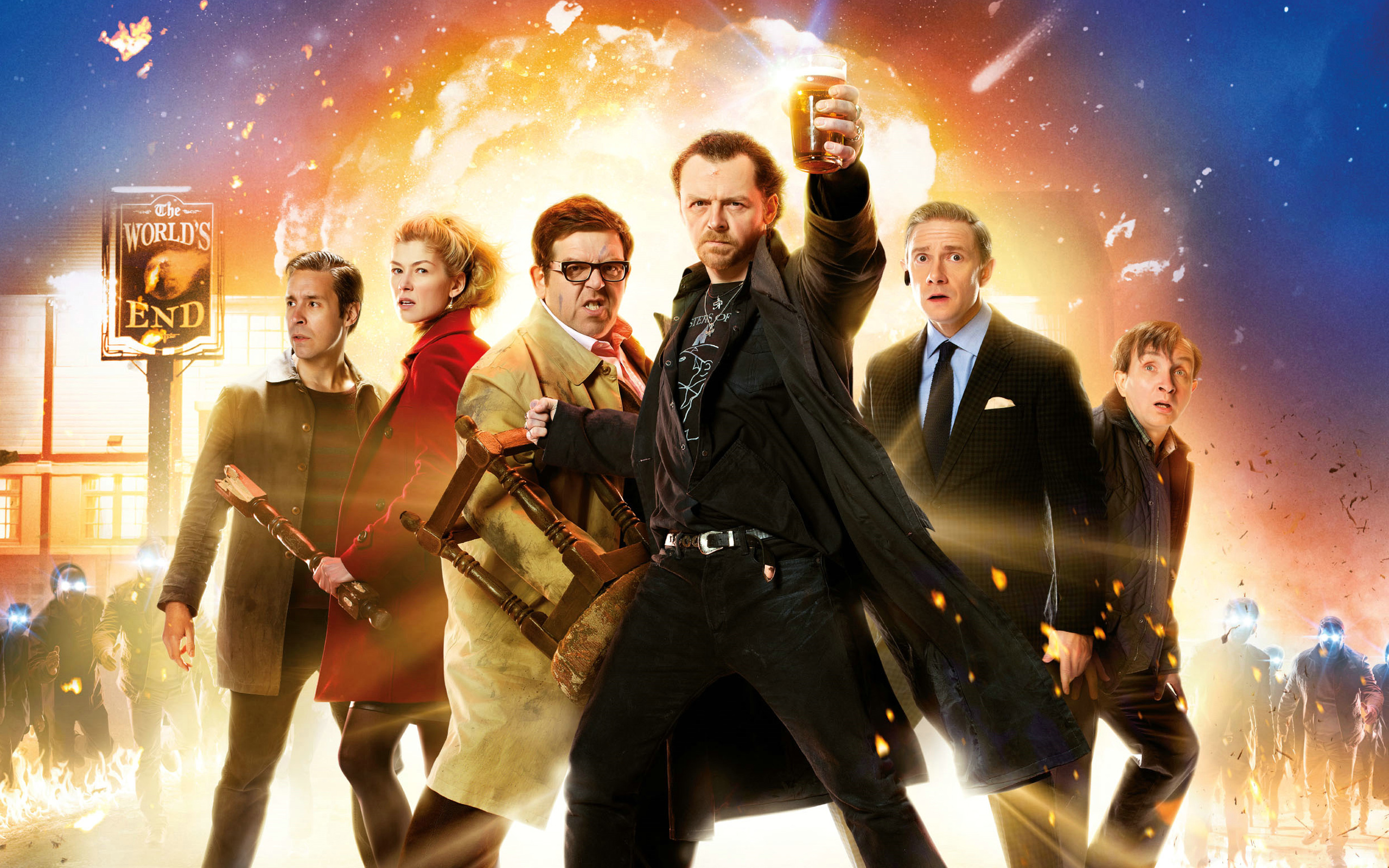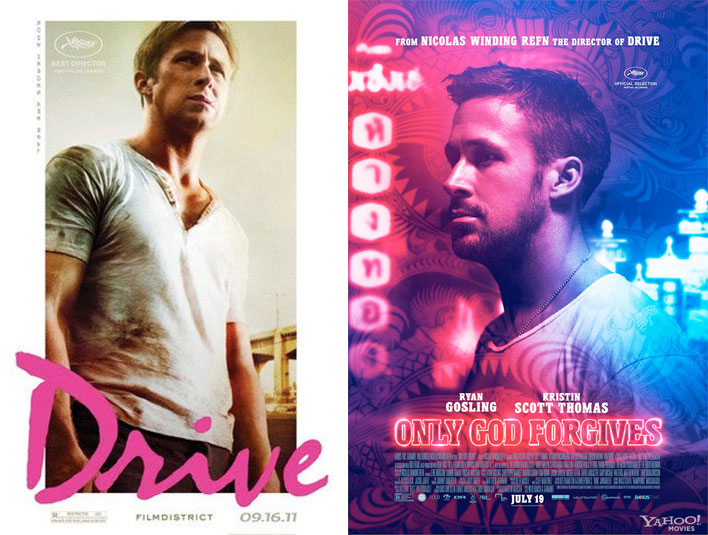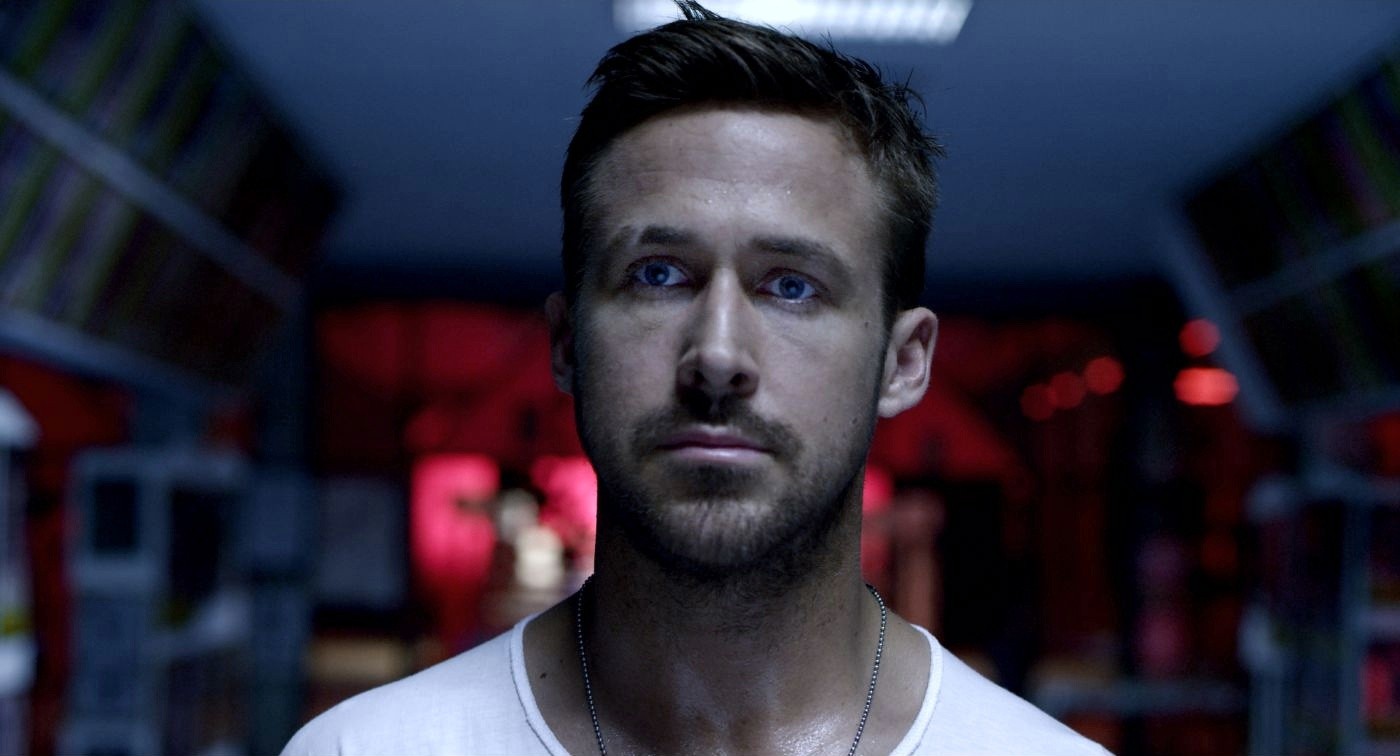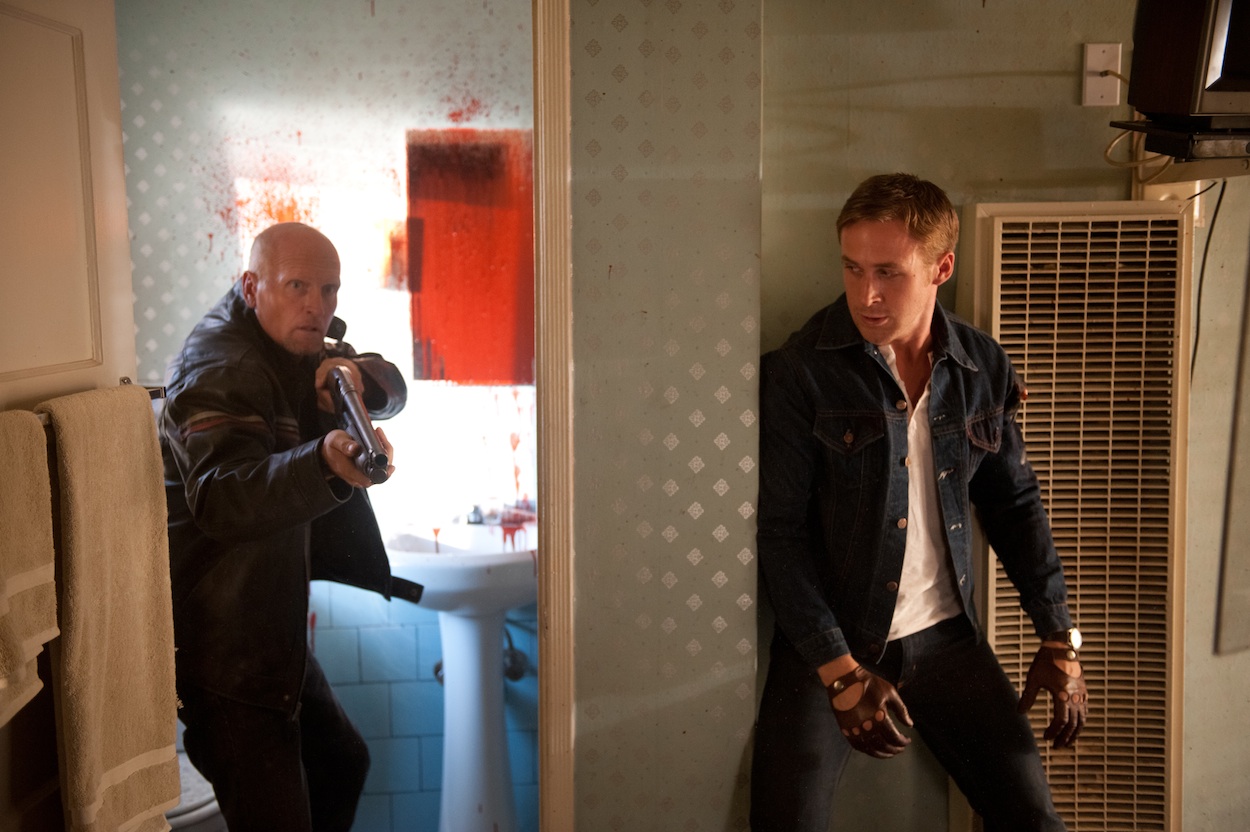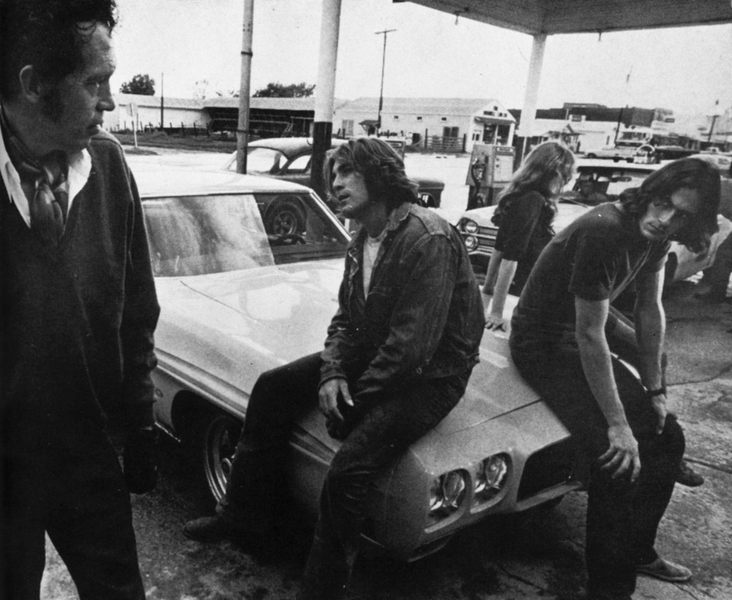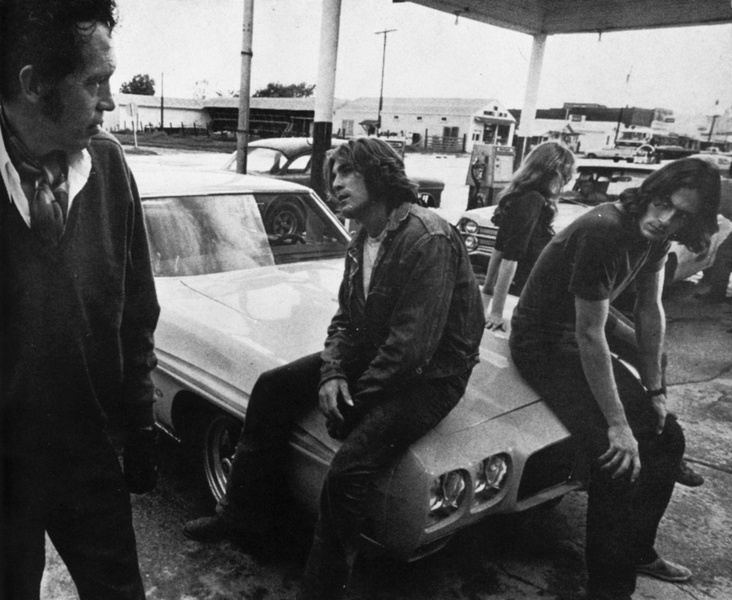25 Pints: The World’s End
[Update 1 September: Since posting this, I’ve seen The World’s End a second time, which radically changed my opinion of it. I now think it an extremely complex film and a masterpiece, perhaps even Wright’s best work to date—see my second attempt at a review/analysis.]
1. I love everything that Edgar Wright has made.
2. Spaced is one of the cleverest sitcoms I’ve ever seen, demonstrating repeatedly how innovation can be wrested from the most hackneyed cliches of a given form.
3. Shaun of the Dead I rank among the greatest zombie films made, the full equal of Night of the Living Dead and (the original) Dawn of the Dead.
4. Hot Fuzz is probably Wright’s best film to date; three viewings in, I’m still grasping its subtleties.
5. Scott Pilgrim vs. the World is my probably favorite film of the past three years—when I am honest with myself, I’m forced to admit that I love it even more than Drive or The Ghost Writer.
6. Edgar Wright is the only celebrity that I follow on Twitter.
7. I now go into everything that he makes expecting nothing short of sheer brilliance and genius.
8. I went to see The World’s End opening day.
9. It pains me greatly to say that the movie is, to date, my least favorite work of his.
Reading what’s extraneous
Last week at Big Other, Paul Kincaid put up a brief but intriguing post in which he asks to what extent various factors surrounding a text influence the way we think about it or its author. He gives the following example:
The program I use for databasing my library pulls down information from a wide variety of sources ranging from the British Library and the Library of Congress to Amazon. More often than not, this can produce some very strange results. I have, for instance, seen novels by Iain Banks categorized as ‘Food and Health’, and novels by Ursula K. Le Guin categorized as ‘Business’. In all probability, these are just slips by somebody bored, though you do wonder what it was about the books per se that led to such curious mistakes.
Paul’s musings raise many interesting questions. For one thing, we might wonder whether the factors he’s describing are indeed extraneous or external to texts. Because I can imagine a good post-structuralist immediately objecting that texts more porous than that, and that it’s all just a sea of endless texts slipping fluidly into one another.
Me, I don’t have a problem with treating texts as discrete and coherent entities, but I admit the situation is complicated.
I made a video that critiques the opening three scenes of “Inception”
I’m trying out different ways of doing film criticism. In addition to writing articles, I think it makes sense to record commentaries (like the one I just did for Drive) and make critical videos. (My inspirations here are Mike Stoklasa and Jim Emerson.)
So here’s my own foray into the latter:
I recorded a commentary track for “Drive”

Hey, HTMLGiant. I recorded a commentary track for Drive; you can download it here. It’s an mp3, 42 MB, 104 minutes long.
Of course I made it so brilliant that you can just listen to it on its own. But if you watch it with Drive (recommended!), it’s all synced up, so cue it to start when the Universal logo starts.
Related posts:
- “DRIVE”
- “Let’s watch a scene from Drive and analyze it”
- “Cliché as Necessity (Birthing Innovation)”
- “Something Film Understands but that Literature Doesn’t”
- “A Little Bit More on Cliché”
Next, I’ll record commentary for Inception.
And Scott Pilgrim vs. the World.
And The Lord of the Rings trilogy.
And Southland Tales.
Update: I forgot to include a link to Scorpio Rising. Here’s a clip:
And here’s the full film.
Something Film Understands but that Literature Doesn’t
I was talking with Jeremy M. Davies recently (actually, we were on our way to see Drive), and the topic of genre as art came up. Now, Jeremy and I are both huge into genre, in all media. We’re nuts over spy thrillers, sci-fi, and fantasy, for instance—not to mention Batman comics. (Only the good ones, though, natch.)
And of course lots of people in various lit scenes (all over) don’t think that genre fiction can be art. They’re really wedded to that “high art / low art” divide. (Or the “literary fiction / all else” divide, as it’s so commonly called.)
Me and J, we were saying how we don’t get it. How can someone read, for instance, Patricia Highsmith’s Ripliad and not recognize it as total artistic brilliance? Or Philip K. Dick’s VALIS, which is one of the greatest novels of the 20th century, hands down? And of course I’d argue that Frank Miller’s Batman: The Dark Knight Returns is one of the finest things published in the 1980s, “despite its being” a comic book. (I didn’t spend all that time analyzing it at Big Other because I thought it was merely cute.)
Anyway, I came to a certain conclusion…
Cliché as Necessity (Birthing Innovation)
Every time I’ve said something nice about Drive, someone has responded by calling the film “clichéd.” Well, I intend to keep saying nice things about Drive (as well as other artistic genre films), so let’s take some time here and now to address that criticism, demonstrating how even when certain material or situations might be clichéd, the artist can still find occasions for artistic expression. Indeed, I want to go so far as to suggest that clichéd situations often provide artists with some of the best opportunities for innovation.
Reminder! HTMLGIANT Meetup: “Two-Lane Blacktop” (Chicago)
This weekend (October 8th & 9th), Chicago’s Music Box Theatre is screening Monte Hellman and Rudy Wurlitzer‘s 1971 masterpiece Two-Lane Blacktop. Long overlooked, Two-Lane has for the past five years or so been enjoying a critical renaissance, and is increasingly regarded as one of the greatest films of the ’70s. (Click here to read some of my own thoughts on it.) And right now is an especially opportune time to see it, what with its grandchild Drive currently killing things in theaters.
There are two screenings, one Saturday, one Sunday, each at 11:30 AM. I’ll be attending the Saturday 11:30 AM show. Anyone care to join me? The movie is 102 minutes long and I was thinking we could grab a coffee afterward, before peeling out onto our nation’s highways.
(Yes, Two-Lane Blacktop really does star James Taylor and Dennis Wilson—in their only film roles! No, they don’t sing, nor is any of their music used in the movie. Yes, they’re both incredible—though it’s Oates who really steals the show.)
… And here’s Chicago Reader contributor Ben Sachs’s Cine-File write-up:
HTMLGIANT Meetup: “Two-Lane Blacktop” (Chicago)
This coming weekend (October 8th & 9th), Chicago’s Music Box Theatre is screening Monte Hellman and Rudy Wurlitzer‘s 1971 masterpiece Two-Lane Blacktop. Long overlooked, Two-Lane has for the past five years or so been enjoying a critical renaissance, and is increasingly regarded as one of the greatest films of the ’70s. (Click here to read some of my own thoughts on it.) And right now is an especially opportune time to see it, what with its grandchild Drive currently killing things in theaters.
There are two screenings, one Saturday, one Sunday, each at 11:30 AM. I’ll be attending the Saturday 11:30 AM show. Anyone care to join me? The movie is 102 minutes long and I was thinking we could grab a coffee afterward, before peeling off onto our nation’s highways.
(Yes, Two-Lane Blacktop really does star James Taylor and Dennis Wilson—in their only film roles! No, they don’t sing, nor is any of their music used in the movie. Yes, they’re both incredible—though it’s Oates who really steals the show.)

